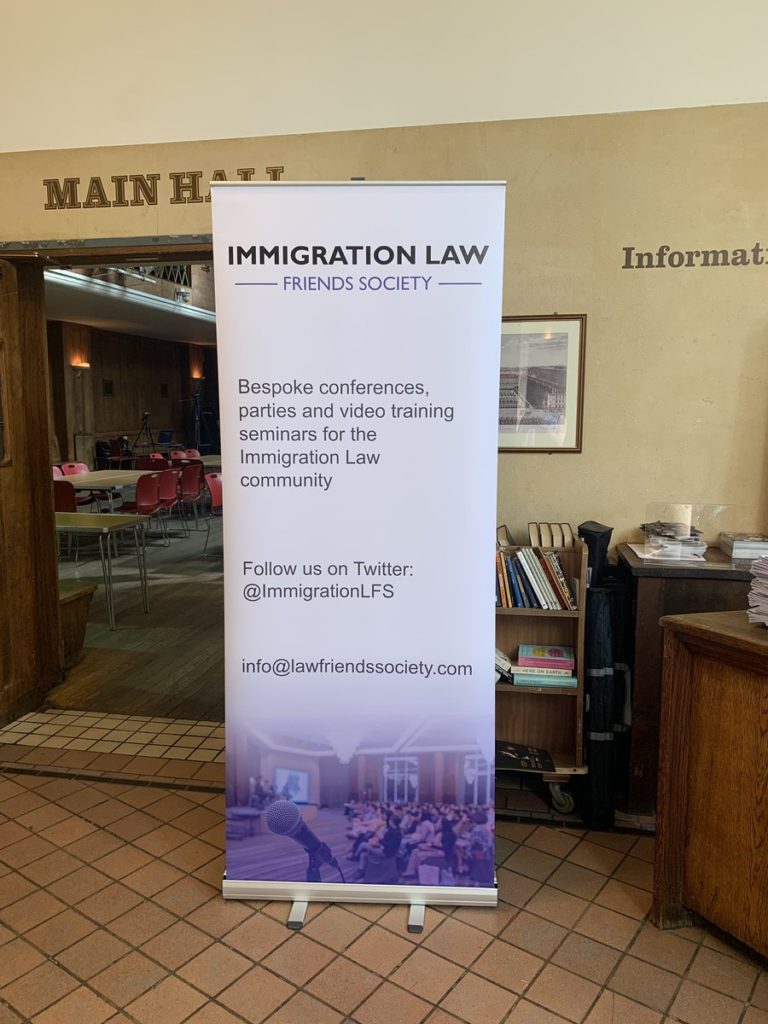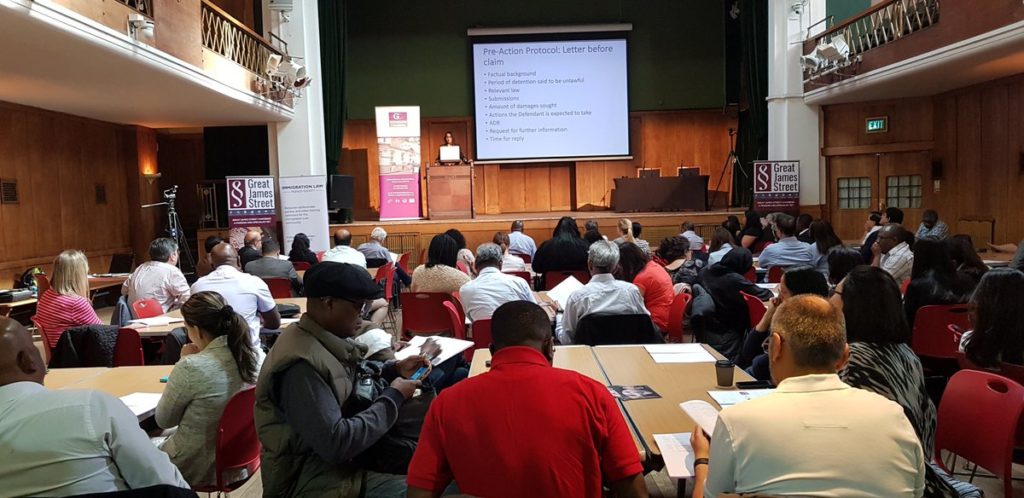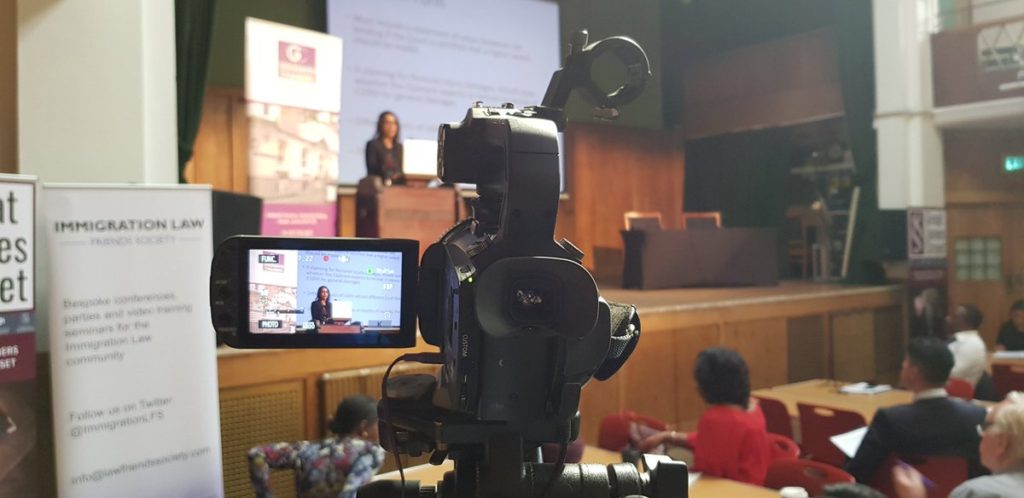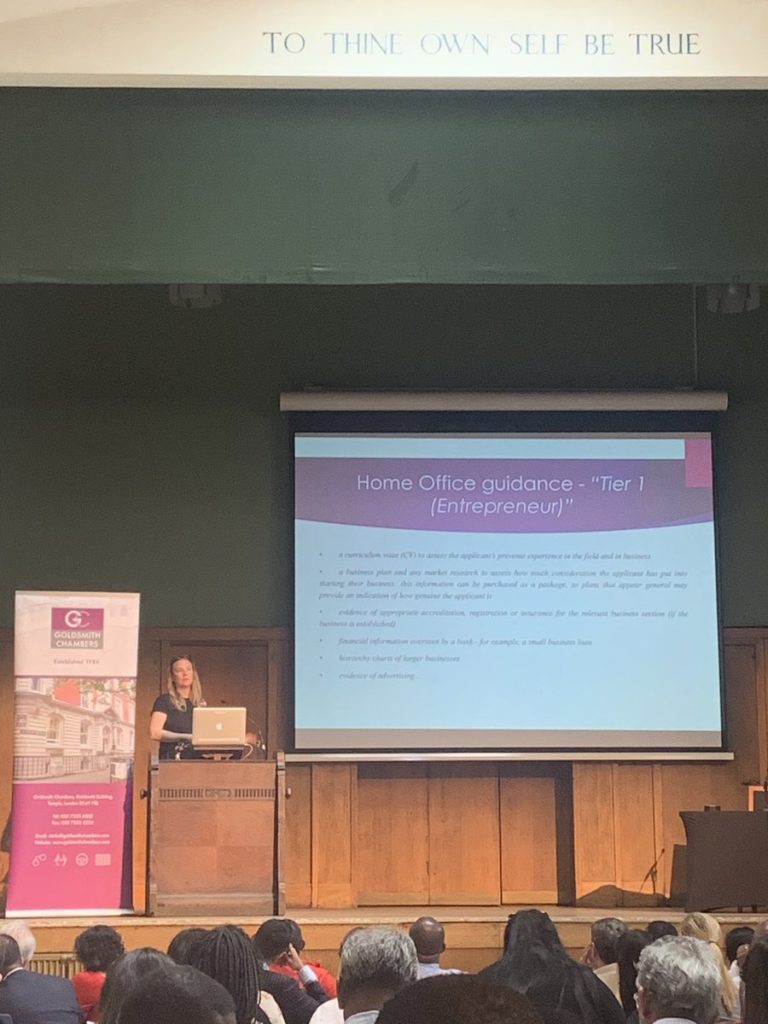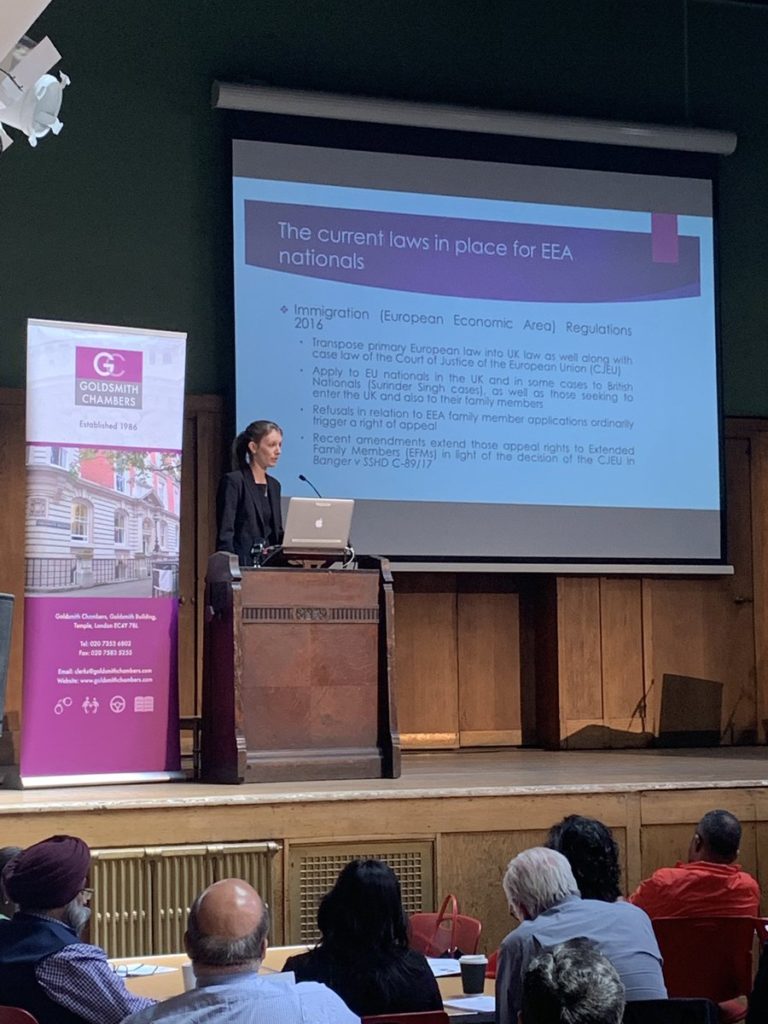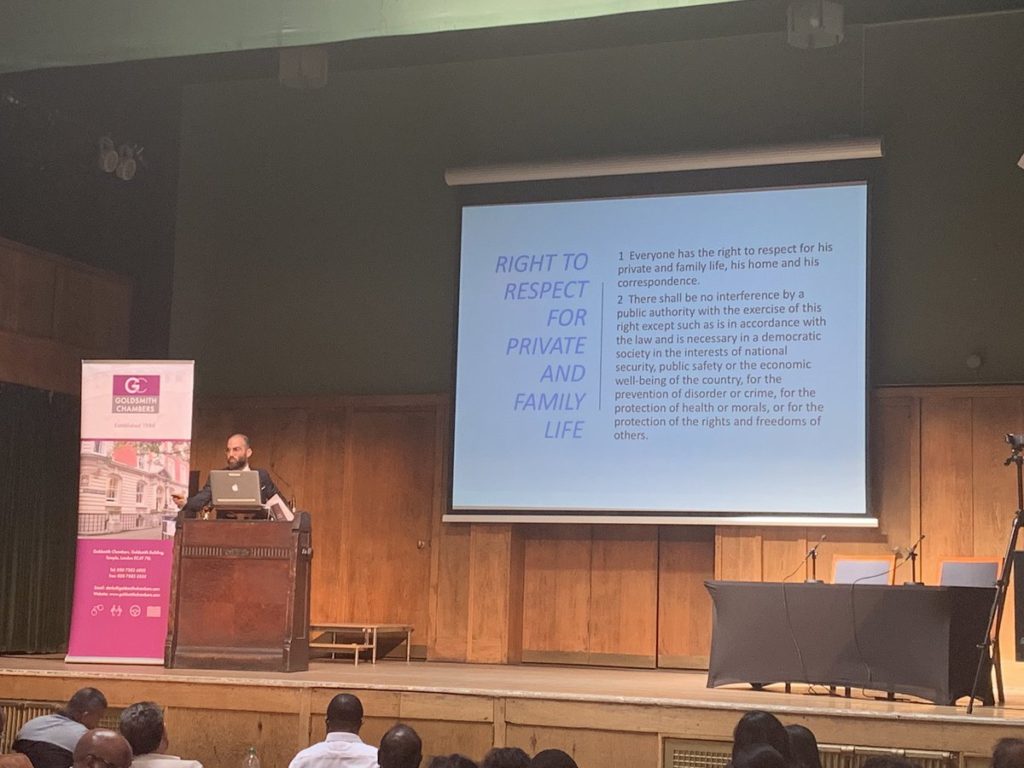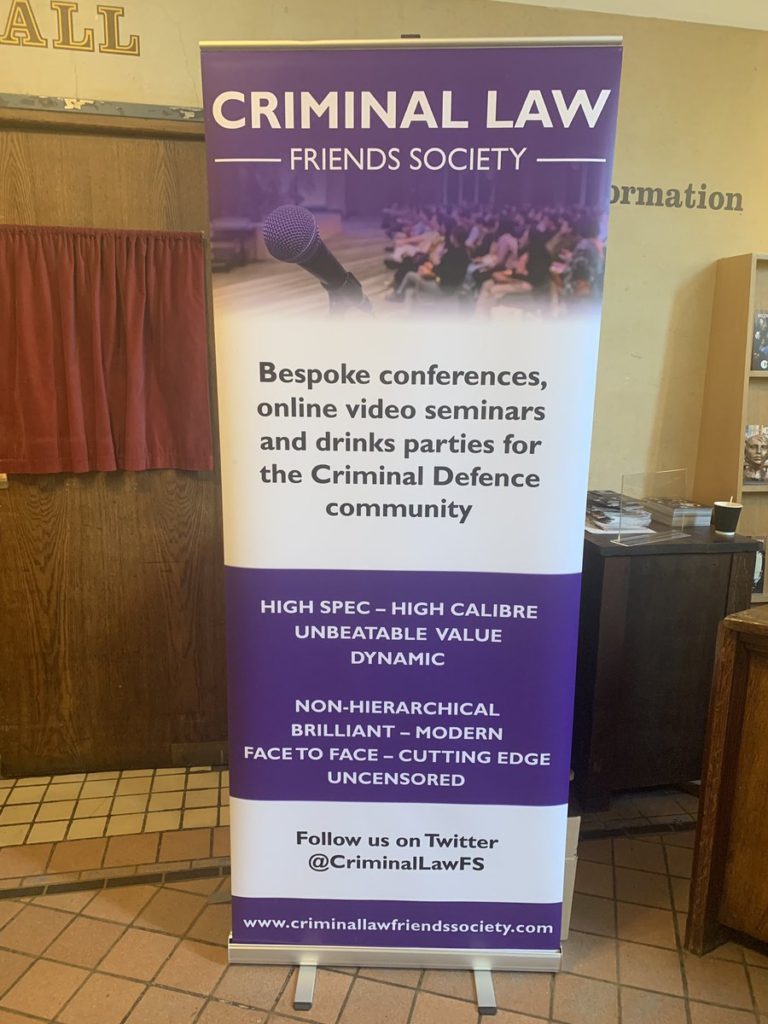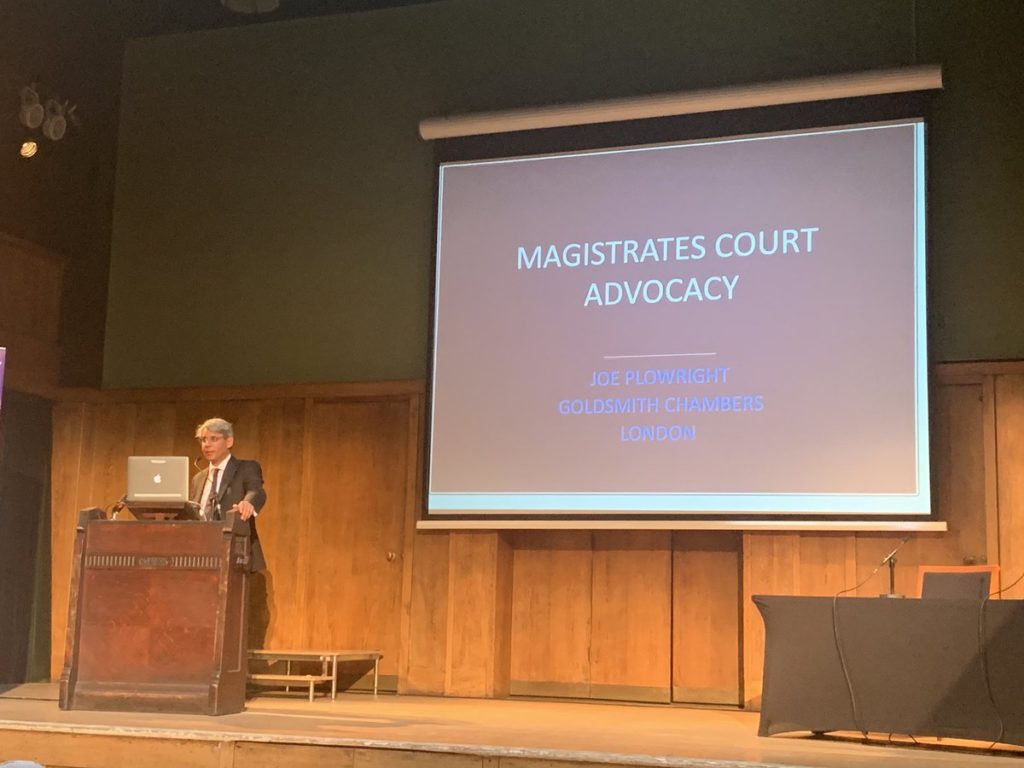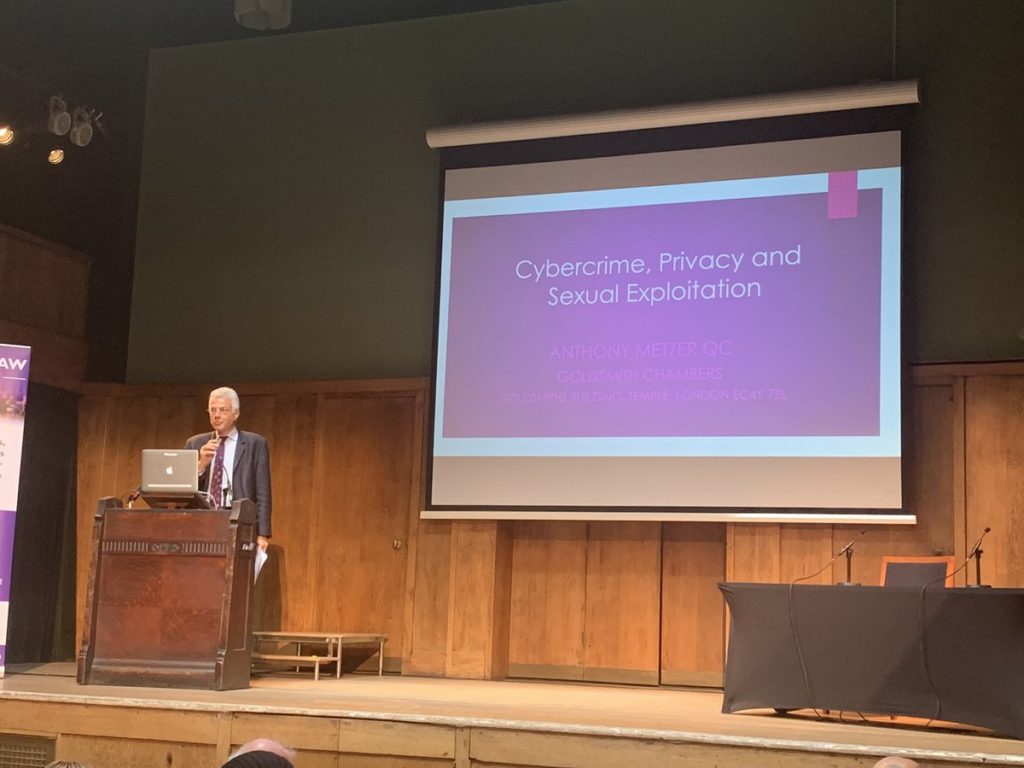The Law Friends Society organises conferences in crime, immigration and family law, providing legal professionals with practical advice and analysis of recent case law.
Goldsmith Chambers was proud to co-host the Immigration Law Seminar on the 23 May, with around 100 practitioners in attendance. Samina Iqbal, Sarah Pinder, Kezia Tobin and Lawrence Youseffian delivered presentations covering a wide range of topics.
Samina Iqbal spoke on the key issues for practitioners to focus on when making a civil claim of unlawful detention. She began by explaining the considerations and analysis that needs to be obtained at the pre-action stage and the importance of tackling this work forensically in order for the client’s case to be put forward in the strongest possible terms. She then highlighted the different types of claims and took the audience through the relevant CPR rules and their application. In particular, she focused on part 36 offers and when they are best used tactically.
Sarah Pinder presented on the ‘genuineness/credibility’ assessment required for a successful Tier 1 Entrepreneur and Innovator application, as well as other changes introduced by the 29 March 2019 Immigration Rules. She explained how to use the Home Office guidance to successfully navigate each stage of the application process. She then focused on the fact that the interview stage is of particular concern; she highlighted both practical steps to be taken as well as the key takeaways from the cases of Mushtaq [2015] UKUT 224 (IAC), Anjum [2017] UKUT 00406 (IAC) and Doody [1993] 1 All Er 151.
Kezia Tobin addressed provisions relating to EU citizens and their families with regards to ‘settled status’ in the wake of the uncertainty created by Brexit. She began by outlining the process for applications, noting the particular challenges for businesses and the further uncertainty as to the nature of the rules after a transition period. Finally, she summarised relevant points from the cases of Banger [2018] EUECJ c-89/17, Kunwar [2019] UKUT 63 (IAC) and Aibangbee [2019] EWCA Ci 339. She concluded her presentation with the remark that this field was subject to change depending on the political position taken by the UK later this year.
Finally, Lawrence Youseffian provided attendees with an update on Article 8 case law. He began by focusing on the test in Razgar [2004] UKHL 27, in particular the issue of proportionality. He highlighted the importance of not only setting out relevant case law within written applications but that this must be applied in order to persuade the decision maker – see Kaur [2018] EWCA Civ 1423. He then went on to explain how one makes a compelling case, focusing on case law relevant to section 117B of the Nationality, Immigration and Asylum Act 2002 and addressing the relevant provisions from Appendix FM.
The Criminal Law Seminar was held on 24 May with around 150 practitioners in attendance. Topics included best practice at the police station, effective magistrates’ court advocacy, the principles of a fair trial with regards to vulnerable witnesses, the rise in knife-crime and potential government plans to tackle it, as well as the rise in cyber-crimes. Additionally, a talk was given by the convenors of the ‘Women in Criminal Law’ group; they highlighted their considerable achievements from the past year and outlined their aspirations for the future.
Joseph Plowright gave a practical and engaging talk on the subject of Magistrates’ Court Advocacy. Using the play of Julius Caesar as his framework, he took attendees through a journey regarding what ‘rhetoric’ is, how it can be learned and how to deploy it effectively. The theme of his talk was that how an advocate is viewed by the court is likely to have a substantial impact upon the success of their submissions. He therefore addressed the components of advocacy, which included building a connection with the audience, deploying emotion effectively and how to deploy evidence in support of arguments. He then brought the audience into the modern era by addressing hot topics such as how to effectively market oneself. Due to unforeseen circumstances, Joe also chaired the conference introducing each speaker throughout the day.
Anthony Metzer QC provided attendees with an update on the ever-changing nature of cyber-crimes. His timely presentation addressed both the specifics of the relevant legislation (some of it new), as well as providing background information to explain and contextualise crimes such as ‘revenge porn’, ‘up skirting’ and ‘cyber-flashing’. He then highlighted some of the practical challenges faced by law enforcement: the use of technology to shield criminal activity, a lack of protocols in place and gaps within current legislation. He further noted the public concern as to the level of intrusion into an alleged victim’s privacy and to what degree a victim can remain anonymous in relation to such crimes. Finally, he addressed the fact that cyber-crimes are further complicated by their multi-jurisdictional nature.
Where time permitted, the speakers participated in Q&A sessions and several stayed after their talks to continue the discussion further with attendees. Chambers would also like to thank our pupil, Beheshteh Engineer for her considerable assistance on both days.
